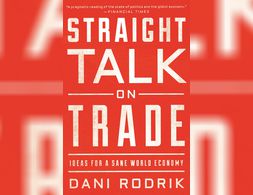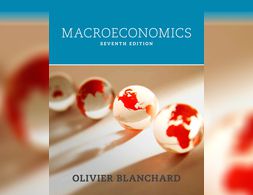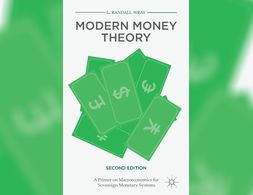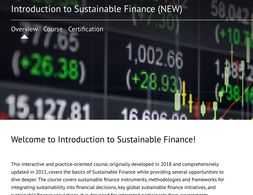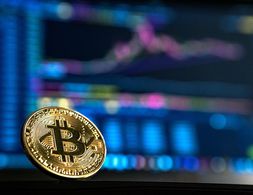✕
345 results
Finance. Climate. Food. Work. How are the crises of the twenty-first century connected?In "Capitalism in the Web of Life", Jason W. Moore argues that the sources of today's global turbulence have a common cause: capitalism as a way of organizing nature, including human nature.
Since the beginning of the twenty-first century, there has been an unprecedented move towards 'rethinking economics' due to the damages generated by the global financial crisis that burst in 2007-2008. Almost a decade after this crisis, policy is still unable to provide all citizens greater wellbeing or at least an encouraging economic future.
An honest discussion of free trade and how nations can sensibly chart a path forward in today’s global economy.
For intermediate courses in economics. A Unified View of the Latest Macroeconomic Events Macroeconomics, Blanchard presents a unified, global view of macroeconomics, enabling readers to see the connections between goods, financial markets, and labor markets worldwide.
In a challenge to conventional views on modern monetary and fiscal policy, this book presents a coherent analysis of how money is created, how it functions in global exchange rate regimes, and how the mystification of the nature of money has constrained governments, and prevented states from acting in the public interest.
Thirty-years of economic transformation has turned China into one of the major players in the global capitalist economy. However, its economic growth has generated rising problems in inequality, alienation, and sustainability with the agrarian crises of the 1990s giving rise to real social outcry to the extent that they became the object of central government policy reformulations.
The recent financial meltdown and the resulting global recession have rekindled debates regarding the nature of contemporary capitalism.
This fresh and unique textbook provides students and general readers with an introduction to economics from a new and much needed perspective, characterised by its uniquely pluralist, sustainable, progressive and global approach.
Unlike traditional textbooks, Introducing a New Economics contains the key concepts of pluralism, sustainability and justice. It provides students with the central questions covered by economics including resources, work, employment, poverty, inequality, power, capital, markets, money, debt and value.
Thomas Piketty's Capital in the Twenty-First Century is the most widely discussed work of economics in recent history, selling millions of copies in dozens of languages. But are its analyses of inequality and economic growth on target? Where should researchers go from here in exploring the ideas Piketty pushed to the forefront of global conversation? A cast of economists and other social scientists tackle these questions in dialogue with Piketty, in what is sure to be a much-debated book in its own right.
After long-time negligence, the Global South and the North-South divide are back on the agenda of development economics again. This book is a neat, accessible introduction into the topic, covering both the current situation and potential remedies from different points of view.
Gender Development and Globalization is the leading primer on global feminist economics and development. Gender is a development issue because social considerations are not easily incorporated into institutions such as policies, regulations, markets and organizations. This process is often referred to as the mainstreaming of gender in development institutions.
This interactive and practice-oriented course updated in 2021 covers the basics of Sustainable Finance including sustainable finance instruments, methodologies and frameworks for integrating sustainability into financial decisions, key global sustainable finance initiatives, and sustainable finance regulations.
Throughout 2022 it has become increasingly difficult for people around the world to meet their basic needs – even those who live in relative affluence in the Global North. This 30-minute classroom exercise takes this common recent experience as a starting point for an exploration of the different economic mechanisms and organisations that can be used to provide for people’s basic needs.
Capitalism is dissolving boundaries - not only in the sense of ever-expanding global trade flows, but also in the concrete everyday working lives of individuals. What implications does this have for our understanding of freedom, work and borders?
Quinn Slobodian a historian of modern Germany and international history analysis of current development in the Mont Pèlerin Society and therefore neo-liberalism. He sees neo-liberalist thinkers less as believers in the self-healing power of markets, but more as ordo-liberal Globalists who wanted to protect the markets from post-war politics and especially mass democracy. Their goal of global capitalism is still strong, however sceptics in the Mont Pèlerin Society are rising, which see international migration as a threat to Globalisation. Therefore, turning neo-liberal policies away from international institutions like the EU back towards the national states as new defenders of the markets as well as international trade and investments.
(A development which can be seen in the Friedrich A. von Hayek-Gesellschaft and especially in the "liberal" wing of the German rightwing populist party AfD)
The article summarizes the effects that the war in Ukraine, the resulting economic sanctions as well as associated financial turbulences have for cryptocurrencies and their role in the global financial system.
Florian Kern replies to Zoltan Pozsar's analysis about the effects of the war in Ukraine on the global financial order and refutes the latter's prognosis of the demise of the US dollar as the world's reserve currency
The objective of the course is to explore the main strengths and weaknesses of orthodox and heterodox paradigms within development economics.
With the onset of an economic crisis that has been universally acknowledged since the end of March, two main questions arise: To what extent is the corona pandemic the starting point (or even the cause) of this crisis? And secondly: can the aid programmes that have been adopted prevent a deep and prolonged recession?
The Covid-19 pandemic has laid bare the deep structural rifts in modern capitalist economies. It has exposed and exacerbated the long-lasting systemic inequalities in income, wealth, healthcare, housing, and other aspects of economic success across a variety of dimensions including class, gender, race, regions, and nations. This workshop explores the causes of economic inequality in contemporary capitalist economies and its consequences for the economy and society in the post-pandemic reality, as well as what steps can be taken to alleviate economic inequality in the future. Drawing from a variety of theoretical and interdisciplinary insights, the workshop encourages you to reflect on your personal experiences of inequality and aims to challenge the way in which the issue is typically approached in economics.
In this overview paper, Laura Porak reviews the history of industrial policy in the European Union before the background of a Cultural Political Economy approach.
In this essay, the principle of capital accumulation, as well as the idea of homo economicus as the basis of the growth model, are located and analyzed from a feminist perspective. The sufficiency approach is presented as an alternative to these two economic logics.
The outbreak of COVID-19 has substantially accelerated the digitalization of the economy. Yet, this unprecedented growth of digital technology brought novel challenges to the labour market. Rise in income inequalities and precarious working conditions or polarization of jobs. In this essay, we try to assess what tools to use to counter these trends.
Health Economics traditionally involves two distinct strands. One focuses on the application of core neoclassical economic theories of the firm, the consumer and the market to health-seeking behaviour and other health issues. It suggests a role for government intervention only in the case of specific market failures (for example externalities, asymmetric information, moral hazard, and public goods) that distort market outcomes. The second strand is evaluation techniques, used to assess the cost effectiveness of competing health interventions.
This module examines current socio-political issues through the lens of pluralism, that is pluralism of theory, pluralism of method and interdisciplinary pluralism
This is an overview of (possibly transformative) proposals to address the economic consequences of the corona crisis
Marxian Political Economy focuses on the exploitation of labour by capital. The economy is not conceived as consisting of neutral transactions for exchange and cooperation, but instead as having developed historically out of asymmetric distributions of power, ideology and social conflicts.
Approaching the law of nature that determines all forms of economy. The bulk of economic theory addresses the economic process by setting out on a catalogue of aspects, seeking the laws in the aspects and hoping to get together a reliable view of the whole.
Stratification economics is defined as a systemic and empirically grounded approach to addressing intergroup inequality. Stratification economics integrates economics, sociology and social psychology to distinctively analyze inequality across groups that are socially differentiated, be it by race, ethnicity, gender, caste, sexuality, religion or any other social differentiation.
Recovery from the Covid-19 crisis provides a chance to implement economic measures that are also beneficial from environmental and social perspectives. While ‘green’ recovery packages are crucial to support economies tracking a low-carbon transition in the short-term, green measures such as carbon pricing are also key to improving welfare in the long-term. This commentary specifies the need for carbon pricing, outlines its implications for our everyday lives, and explains how it works alongside value-based change in the context of climate action and societal well-being.
Feminist economics focuses on the interdependencies of gender relations and the economy. Care work and the partly non-market mediated reproduction sphere are particularly emphasised by feminist economics.
Mainstream economic narratives notably the concept of comparative advantage trade theory which assumes the equal balance of power between parties are deployed to support the merits of Global Value Chains that the global integration via trade creates mutual gains for both developed and developing countries This narrative is advanced in …
We use cookies on our website. Click on Accept to help us to make Exploring Economics constantly better!



